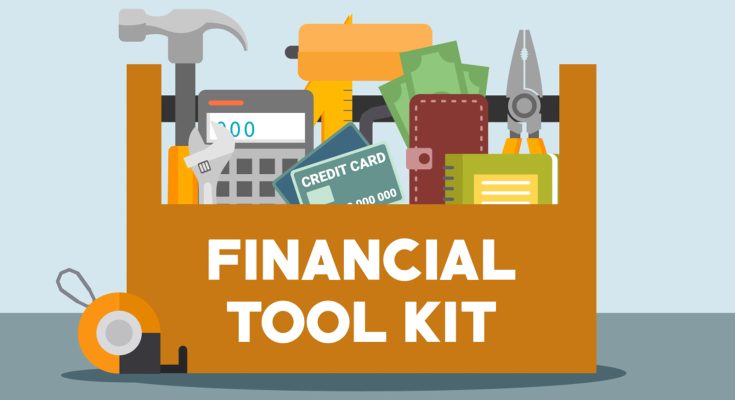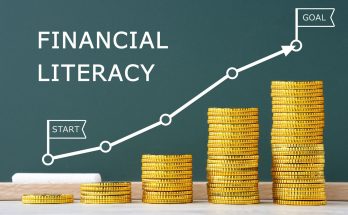Introduction to Financial Tracking Tools
Managing your finances can often feel like a daunting task. With bills to pay, groceries to buy, and unexpected expenses lurking around every corner, keeping track of where your money goes is essential. This is where financial tools come into play. These handy resources can simplify the process of monitoring your spending habits and help you take control of your financial future.
Imagine having a clear picture of your finances at all times—no more guesswork or surprise expenses! Whether you’re trying to save for a vacation, pay off debt, or simply live within your means, leveraging the right financial tracking tools can make all the difference. Let’s dive deeper into how these tools work and why they are crucial in today’s fast-paced world.
Benefits of Tracking Your Spending
Tracking your spending offers clarity. It allows you to see where your money is going each month. This awareness can be a game-changer for your financial health.
You might discover surprising patterns in your expenses. Small, recurring purchases can add up quickly, often without us realizing it. Identifying these trends empowers you to make informed decisions.
Another benefit is the ability to set and stick to a budget. Knowing how much you spend helps you allocate funds wisely across different categories like savings, essentials, and leisure activities.
Additionally, tracking spending aids in achieving financial goals. Whether it’s saving for a vacation or paying off debt, having visibility into your finances keeps motivation high.
Regular monitoring of expenses fosters better financial habits over time. By holding yourself accountable, you’re more likely to make thoughtful choices about future purchases and investments.
Types of Financial Tracking Tools
When it comes to managing your finances, various tools cater to different needs. Understanding these options can make all the difference in achieving financial clarity.
Budgeting apps are designed to help you allocate funds across categories. They provide an overview of income versus expenses, making it easier to stick to a spending plan.
Expense trackers, on the other hand, focus on documenting every purchase. By logging transactions regularly, you gain insight into where your money goes each month.
For those who prefer traditional methods, spreadsheets remain popular. Customizable and versatile, they allow for tailored tracking suited specifically to individual preferences and goals.
Some people benefit from integrated financial platforms that combine budgeting with investment monitoring. These comprehensive solutions provide a holistic view of one’s financial health. Each tool serves its purpose—choosing the right one can enhance your overall financial management experience.
Budgeting Apps
Budgeting apps have transformed how people manage their finances. They offer a user-friendly interface that allows you to monitor your income and expenses in real time.
Many budgeting apps come with customizable features. You can tailor them to fit your unique financial situation. This personalization makes it easier to stick to your budget goals.
Some popular options include Mint, YNAB (You Need A Budget), and Personal Capital. These platforms not only track spending but also provide insights into saving habits.
Moreover, some apps allow for bill reminders and goal tracking. This means you can avoid late fees while working toward specific savings targets.
With secure connections to your bank accounts, these tools make it simple to see where your money goes each month. The more informed you are about your spending patterns, the better decisions you can make moving forward.
Expense Trackers
Expense trackers are essential financial tools that help you monitor your daily spending. These apps categorize expenses automatically, making it easier to see where your money goes each month.
Many expense trackers offer features like receipt scanning and bill reminders. This helps ensure you never miss a payment or overlook a hidden fee.
Some popular options allow for syncing with bank accounts, providing real-time updates on your finances. This connectivity gives you an accurate view of your cash flow without manual entry.
User-friendly interfaces make tracking simple, even for those new to budgeting. Customizable categories let users tailor their experience based on their unique spending habits.
Finding the right tracker can empower you to take control of your financial future while paving the way toward smarter spending choices.
Features to Look for in a Financial Tracking Tool
When choosing a financial tracking tool, user-friendliness is essential. A clean interface helps you navigate easily and reduces the learning curve.
Look for tools that offer real-time syncing with your bank accounts. This feature ensures automatic updates of transactions, saving you time and effort.
Customization options are also valuable. A good tool allows you to categorize spending according to your preferences, helping personalize your budget more effectively.
Consider reporting features as well. Visual representations like charts and graphs can help illuminate spending patterns over time.
Check for security protocols in place. Your financial data should be protected through encryption or multi-factor authentication to ensure privacy and safety while managing your finances efficiently.
Tips for Using Financial Tracking Tools Effectively
To make the most of your financial tracking tools, start by setting clear goals. Know what you want to achieve, whether it’s saving for a vacation or paying off debt.
Regularly input your transactions. The more accurate and up-to-date your data is, the better insights you’ll receive. Consider scheduling weekly check-ins to review your spending habits.
Utilize notifications offered by many apps. These reminders can help keep you accountable and alert you when you’re nearing budget limits.
Don’t shy away from exploring all features available in the tool. Some apps offer insights like spending patterns or comparisons with previous months that can be incredibly useful.
Share your goals with someone else—be it a partner or friend. Discussing financial habits can provide support and motivation as you track your progress together.
Conclusion
Tracking your spending habits is crucial for achieving financial stability and reaching your goals. Using the right financial tools can simplify this process, providing you with insights into where your money goes. A variety of options exist, from budgeting apps to expense trackers, each offering unique features to suit your needs.
By understanding the benefits of these tools and knowing what to look for—like user-friendliness, real-time updates, and customization—you can make informed decisions about which ones will work best for you. Additionally, employing practical tips while using these financial tools will enhance their effectiveness in managing your budget.
As life evolves and expenses change, having a reliable system in place ensures that you remain on top of your finances. Embracing technology not only empowers you but also sets a path toward smarter spending habits and greater financial freedom. Investing time now into finding the right financial tracking tool can lead to long-term rewards and peace of mind down the road.



